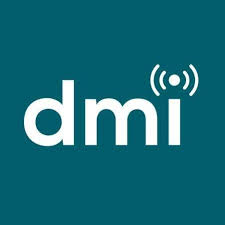The Challenge
Burkina Faso faces ongoing challenges in improving health outcomes for women and children, especially in areas affected by conflict and insecurity. In 2021, the country reported 87 deaths per 1,000 live births among children under five. That same year, only 19 percent of children aged 6 to 23 months were fed five or more food groups, 23 percent of children under five were stunted, and just 20 percent of households had soap available for handwashing.1 Conflict has disrupted health services, making it harder for families to access care and information. In this context, radio campaigns are a potentially effective way to reach large audiences with health messages. Past research in Burkina Faso has shown that mass media can increase treatment-seeking for common causes of child mortality, antenatal care attendance, delivery in a health facility, and the use of family planning.2
The Intervention
Building on earlier efforts, DMI launched a new mass media radio campaign to address a wide range of health topics affecting families in Burkina Faso. The campaign includes messages on child nutrition, Water, Sanitation, and Hygiene (WASH) and child health. To ensure relevance, the messages were adapted to different types of conflict-affected areas, including those hosting displaced populations and regions under blockade.
The Evaluation
Researchers are partnering with IPA Burkina Faso and DMI to conduct a randomized evaluation assessing whether the format and frequency of radio messages can change parents’ knowledge and behavior about key health issues. Water, Sanitation, and Hygiene. The intervention includes 16 community radio stations, which are randomly assigned in two stages.
First, the stations are assigned to one of two broadcast formats:
- Short spots only: The stations will air short health messages only
- Short spots and longer interactive programs: These stations will air both short messages and longer, story-based programs with call-ins from listeners.
Then, within each format group, stations are further assigned to one of two frequency levels for short spots:
- Short spots aired five times per day
- Short spots aired ten times per day
Researchers are also conducting surveys with 1,600 parents of children aged 6-18 months in the areas served by these stations. The surveys will be carried out four times over fifteen months to measure parents’ exposure to the campaign, what they know, talk about, and do about dietary diversity for their young children, and hand hygiene.
The findings will help improve the design of future health communication efforts in Burkina Faso and similar settings.
Results will be available in 2026.
Sources
1 Institut National de la Statistique et de la Démographie (INSD) and ICF, Enquête Démographique et de Santé 2021 (EDS V), Burkina Faso (Rockville, MD: INSD and ICF, 2022).
2 Joanna Murray et al., “The Effect of a Mass Radio Campaign on Child Mortality in Burkina Faso: A Cluster-Randomised Trial,” The Lancet Global Health 8, no. 3 (2020): e450–59; Benjamin Loevinsohn et al., “Using Mass Media to Improve Family Planning: Cluster RCT Results from Burkina Faso,” Journal of Development Economics 152 (2021): 102679.
Implementing Partner













